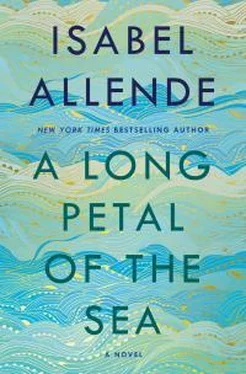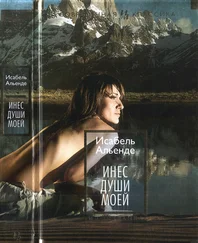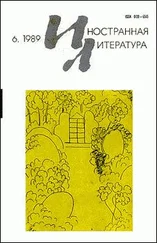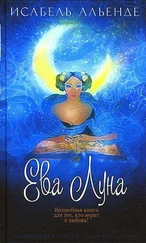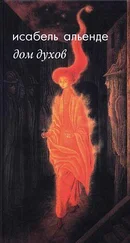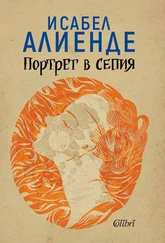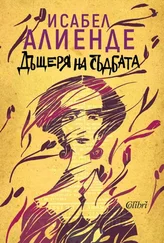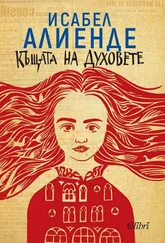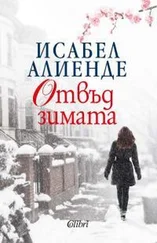—
THAT DECEMBER MATIAS EYZAGUIRRE left for Paraguay to serve an ambassador who was despotic toward his subordinates and servile toward those of a higher social rank. Matias entered into this second category. He left alone, as Ofelia had rejected his ring on the pretext that she had promised her father to stay single until she was twenty-one. Matias was well aware that if she had wanted to get married, nobody would have been able to stop her, but he resigned himself to wait, with all the risks that implied. Ofelia had her choice of admirers, but his future in-laws assured him they would keep an eye on her. “Give the girl time, she’s very immature. I’m going to pray for you both, for you to be married and very happy,” Doña Laura promised him. Matias thought he could win Ofelia over once and for all with a constant stream of correspondence, a flood of love letters: that was what the mail was for, and he could be much more eloquent when he wrote than when he spoke. Patience. He had loved Ofelia since they were children; he hadn’t the slightest doubt that they were made for each other.
As he did every year, a few days before Christmas, Isidro del Solar had a suckling pig brought from their country property, and hired a butcher to slaughter it in the most distant yard behind the house, out of sight of Laura, Ofelia, and Baby. Juana supervised the transformation of the hapless beast into meat for the barbecue, sausages, chops, ham, and bacon. She was also in charge of the Christmas Eve dinner for the whole family, as well as of making a crib in the hearth with plaster figures brought from Italy.
Early on Christmas Eve, when she went to take Don Isidro his coffee in the library, she paused in front of him.
“Is something wrong, Juana?”
“In my opinion, we ought to invite niño Felipe’s communists.”
Isidro del Solar raised his eyes from the newspaper and stared at her in amazement.
“I mean for little Marcel’s sake.”
“Who?”
“You know who I’m talking about, patron. The little brat, the communists’ child.”
“Communists don’t give a damn about Christmas, Juana. They don’t believe in God, and couldn’t care less about the baby Jesus.”
Juana stifled a cry. Felipe had explained to her a lot of communist nonsense about equality and the class struggle, but she had never heard of anyone who didn’t believe in God and couldn’t care less about the baby Jesus. It took her a minute to recover her voice.
“That may be so, patron, but that’s not the brat’s fault. As I see it, they should dine here on Christmas Eve. I’ve already told niño Felipe and he agrees. So do Señora Laura and little Ofelia.”
—
SO IT WAS THAT the Dalmaus spent their first Christmas in Chile with the extended del Solar family. Roser wore the same dress she had worn for her wedding in Perpignan, navy blue with white flowers around the neckline. She gathered her hair up in a net with black beads and a jet clasp Carme had given her when she learned Roser was expecting a child by her son Guillem. “You’re my daughter-in-law now, there’s no need for any paperwork,” she had told Roser. Victor had on one of Felipe’s three-piece suits that was a little baggy and short in the leg.
When they arrived at the house on Calle Mar del Plata, Juana took charge of Marcel and swept him off to play with Leonardo, while Felipe propelled the Dalmaus into the big drawing room for the obligatory presentations. He had told them that in Chile the social classes were like a mille-feuille cake, easy to reach the bottom but almost impossible to reach the top of, because money could not buy pedigree. The only exceptions were talent, as in the case of Pablo Neruda, and the beauty of certain women. That had been the case with Ofelia’s grandmother, the daughter of a modest English shopkeeper, a beauty with the bearing of a queen who came to improve the race, as her descendants, the Vizcarras, claimed. If the Dalmaus had been Chilean, they would never have been invited to the del Solars’ table, but for the moment, as exotic foreigners, they were floating in limbo. If things went well for them, they would end up in one of the numerous subdivisions of the Chilean middle class. Felipe warned them that in his parents’ house they would be observed like wild animals in a circus by people who were conservative, religious, and intolerant, but once that initial curiosity had been satisfied they would be welcomed with the obligatory Chilean hospitality.
And so it proved. Nobody asked them about the Civil War or the reasons for their exile—partly out of ignorance (according to Felipe they only ever read the society pages of El Mercurio ) but also out of kindness: they didn’t want to upset the guests. Victor suddenly relapsed into the adolescent shyness he thought he had left behind long ago, and remained standing in a corner of the French-style room between two Louis XV armchairs upholstered in moss-green silk, speaking as little as possible. Roser, on the other hand, was in her element, and didn’t need to be asked twice to play cheerful tunes on the piano, accompanied by several of the guests who had drunk one glass too many.
It was Ofelia who was most impressed by the Dalmaus. What little she knew about them was based on Juana’s comments, and she had imagined a pair of gloomy Soviet officials, even though Matias had spoken of his pleasant experience with Spaniards, in general, when he had to stamp their visas on the Winnipeg. Roser Dalmau was a young woman who radiated confidence but without the least hint of vanity or social climbing. She explained to a gaggle of ladies, all dressed in black with pearl necklaces (the uniform of distinguished Chilean matrons), that she had been a goatherd, a baker, and a seamstress before she made a living from the piano. She said this so naturally it was celebrated as if she had done all of it on a whim. Then she sat at the piano and completely won them over.
Ofelia felt a mixture of envy and shame when she compared her existence as an unenlightened, idle young woman to that of Roser, who Felipe had told her was only a couple of years her senior, but had lived three lives already. She had been born into poverty, had survived a war on the losing side, and suffered the desolation of exile; she was a mother and wife, had crossed the seas and reached the ends of the earth without a penny to her name, and yet she was afraid of nothing. Ofelia wished she could be worthy, strong, and brave—she wished she could be Roser.
As if reading her thoughts, Roser came over, and the two women spent some time on their own, smoking out on the balcony to escape the heat. Roser thought that to celebrate Christmas in the middle of summer made no sense. Ofelia surprised herself by confessing to this stranger her dream of going to Paris or Buenos Aires and dedicating herself to painting, and how crazy that was because she had the misfortune of being a woman, a prisoner of her family and social convention. She added with a mocking smile that disguised her impulse to cry that the worst obstacle was being financially dependent: she would never be able to earn a living with her art. “If it’s your vocation to paint, sooner or later that’s what you’ll do, so the sooner the better. Why does it have to be Paris or Buenos Aires? Discipline is all you need. It’s like the piano, isn’t it? It only rarely brings in enough to live on, but you have to try,” argued Roser.
That evening, more than once Ofelia felt Victor Dalmau’s ardent gaze following her around the room, but since he remained in his corner and made no attempt to approach her, she whispered to Felipe for him to make the introductions.
“This is my friend Victor, from Barcelona. He was a militiaman in the Civil War.”
Читать дальше
